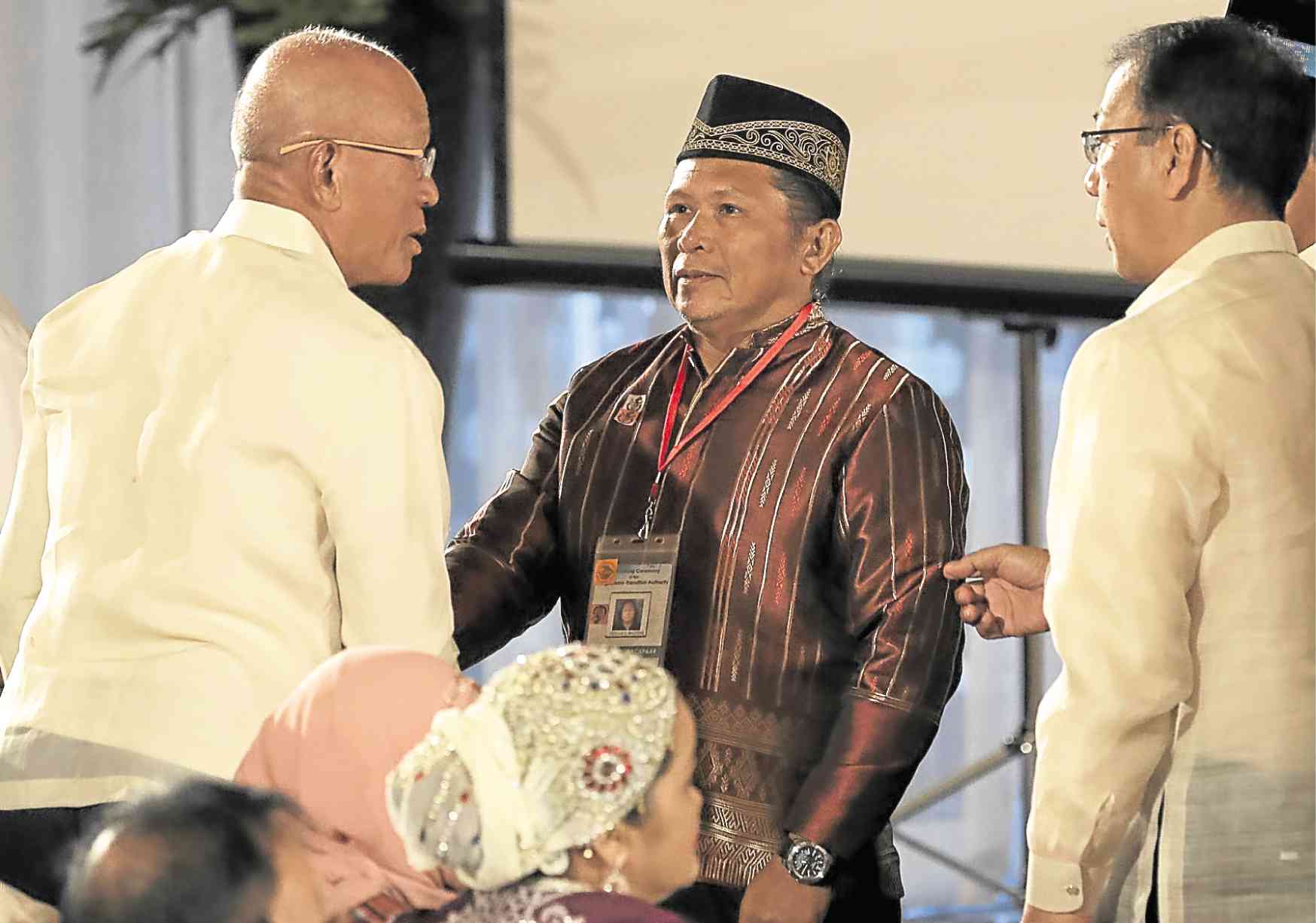Commander Bravo: Child of war, fiery rebel, Moro exec

Credit to Author: lalos| Date: Sat, 02 Mar 2019 23:13:12 +0000
Abdullah Goldiano Macapaar, popularly known as Commander Bravo, created a stir when he was named among the 80 members of the interim government of the new autonomous Muslim region called the Bangsamoro Transition Authority (BTA).
Coming down from his mountain lair in Mindanao, Bravo for the first time stepped into the halls of Malacañang where he was sworn into office by President Duterte last week.
Bravo is the commander of the northwestern Mindanao forces of the Moro Islamic Liberation Front (MILF) and is well known as the guerrilla leader who led the attack on the Lanao del Norte town of Kauswagan in 2008 after the Supreme Court declared a peace deal between the MILF and the Arroyo government unconstitutional.
At the time, many MILF members and commanders, including Bravo, expressed frustration over the seemingly endless talks to peacefully settle decades of Moro insurgency and establish self-rule in their homeland.
But in the recent campaign for the ratification of the Bangsamoro Organic Law (BOL) that would establish the new Bangsamoro Autonomous Region in Muslim Mindanao (BARMM), Bravo drew attention not for his belligerence but for going all out to push for the yes vote in the plebiscite and for the inclusion of six Lanao del Norte towns in the BARMM.
Most of the residents in the towns of Baloi, Munai, Nunungan, Pantar, Tagoloan and Tangkal, known strongholds of the MILF, voted for inclusion in the autonomous region. The Majority of Lanao del Norte’s towns, however, voted against it, so they were excluded from the BARMM.
After the vote and fearing a repeat of Bravo’s rampage in 2008, some villagers in Lanao del Norte started packing and headed for safer areas. Their fears proved to be unfounded for, despite his frustration, Bravo followed the MILF chain of command to respect the outcome of the plebiscite.
Exposed to war at 11
Bravo, 58, is no stranger to fears of ordinary folks about armed conflicts. As early as when he was just 11 years old, he experienced what it felt like to be in the middle of a war.
He grew up in the village of Delabayan in Kauswagan, the youngest of the six children of the late Sultan Macapaar and Habiba Goldiano, a native of Ozamiz City, according to Ithna Ashariy-Imamiyyah L. Sanguila, a history major at Mindanao State University-Iligan Institute of Technology, who wrote Bravo’s life story for her thesis.
In 1971, clashes broke out in Lanao del Norte between the Moro armed group called Barracuda and Ilaga, the Christian paramilitary group allied with the military, forcing Bravo’s family to seek refuge in a forest.
“I and my parents ran to hide in the forest but even there, we were bombed by soldiers,” Bravo said in an interview with the Inquirer.
“Several of my relatives died, our houses and properties were burned and destroyed,” he said.
Bravo was a Grade 4 student at the time and he was forced to quit school.
After that “war,” he joined the Moro National Liberation Front (MNLF).
Nom de guerre
During training in 1973, he and the other recruits were each required to have an alias.
“I chose the name of Bravo because I was fond of the radio drama ‘Diego Salvador.’ Bravo for me, then, meant victory,” he said.
Bravo joined guerrilla leaders, including one of his brothers, who had split from the MNLF to form the MILF in the late 1970s.
In 1983, he was deployed as a volunteer Muslim fighter in Afghanistan where he fought for almost three years alongside the Afghan mujahideen who were resisting Soviet invaders.
Back in the Philippines, Bravo began to develop the reputation of an outspoken guerrilla commander with his fiery rhetoric. He was often seen in camouflage uniform and armed with an assault rifle and grenades.
On March 15, 2000, he received a text message from his comrades telling him to be ready for combat as a platoon of Army Scout Rangers had been sighted in Inudaran, another Kauswagan village.
Inudaran was then called Camp John Mac, named after Bravo’s late brother, Macrang.
MOA-AD rejection
The fighting between the MILF guerrillas and the soldiers that erupted after the Muslim dawn prayer that day almost took the life of the late MILF chair Salamat Hashim, said Musa Sanguila, director of the civil society group Panagdait.
Bravo became known as the MILF commander who led the attacks on several coastal villages in Kauswagan and Kolambugan towns in August 2008, shortly after the Supreme Court junked the memorandum of agreement on ancestral domain (MOA-AD) on grounds that the proposed peace agreement would create an independent state.
Bravo’s notoriety was repeatedly mentioned by the ruling Dimaporo clan of Lanao del Norte who campaigned against the inclusion of the province’s six towns in BARMM.
But Bravo said the MILF stood for peace and that the war they had waged over the past four decades was against oppression.
Even before the results of the plebiscite came out, he said he would follow the MILF leadership’s position even if the yes vote lost in the plebiscite.
After the BOL was ratified, he was named as one of the 41 MILF representatives in the BTA.
The rebel commander was among several who were hunted down by the military who attended the Malacañang ceremony to take their oaths as leaders of the interim government.
Peace Undersecretary Nabil Tan said the government was preparing an amnesty package for Moro rebels who would decommission their weapons under the 2014 peace deal.
Tan said the amnesty, which requires concurrence by Congress, covered at least 10 MILF commanders facing criminal charges as well as around 35,000 guerrillas. —With a report from Jeoffrey Maitem